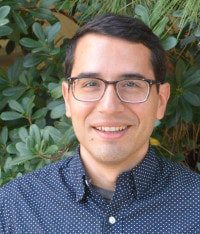Previously, Rodriguez was a postdoctoral scholar in the Digital Learning Lab, managing the NSF-funded project, Investigating Virtual Learning Environments. Before joining UC Irvine, he worked at WestEd helping schools make data-driven decisions that improved learning outcomes in classrooms.
Fischer is Assistant Professor of Educational Effectiveness at the Hector Research Institute of Education Sciences and Psychology at the University of Tübingen in Germany and a Research Affiliate with the UC Irvine School of Education. Previously, he served as a distinguished postdoctoral scholar at UC Irvine working under the mentorship of Mark Warschauer and Dean Richard Arum. He received his Ph.D. in Learning Technologies from the University of Michigan Zhou researches the use of technology tools to support learning in various disciplines. In the School of Education, she served as a postdoctoral scholar in the Digital Learning Lab, working on the CS10K Computer Science Education project, CS1C, to build a Computer Science Teacher Authorization program and a professional learning community for computer science teachers. Warschauer is a Professor of Education and Informatics and director of the Digital Learning Lab (DLL) at UC Irvine. He has been a leader in the field of digital learning—with a focus on the needs of diverse learners—since the early 1990s. Current major projects include a study of online learning in higher education, a randomized-control trial of a promising new literacy software for middle school students, and the use of conversational agents to create interactive science videos for young children. His DLL team is exploring new approaches to data mining, machine learning, and learning analytics to analyze the learning and educational data that result from use of new digital tools. Abstract A growing body of work has shown that two specific study strategies help explain differences in learning and achievement in gateway courses: spacing (breaking up study sessions across multiple days) and self-testing (actively recalling information from memory). However, it is still unclear whether the benefits of these strategies are applicable in more advanced biology courses, and whether promoting effective study practices in these courses (spacing and self-testing) is related to increased use of these practices and greater learning outcomes. We studied two senior-level microbiology courses that were taught by the same instructor. Using a quasi-experimental design, one course additionally received a light-touch study skills intervention, where the instructor introduced the concepts of spacing and self-testing while also providing reminders to students about utilizing these strategies. We found that, while the intervention was not related to increased use of spacing and self-testing, both strategies were positively related to learning, as measured by the final course grade. Results from multiple regression analyses revealed that engaging in spacing throughout the course was the most consistent predictor of final course grade, even after accounting for other study strategies, demographic characteristics, and prior academic achievement. Our results add to the literature emphasizing the importance of spacing in increasing students’ achievement in STEM courses. Comments are closed.
|
Resources for:
|
|


